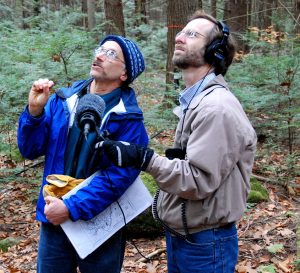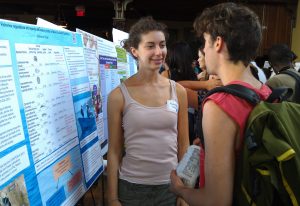Telling the Right Story, for the Right People, at the Right Time
January 8-March 4, 2017
Trying to set priorities for communicating your sites’ work? Or developing your first professional profile as you search for a job? Building a global reputation or breaking into a new area of research?

Establishing communications goals, making careful choices about audience, and developing a compelling story arc are fundamental to effective communication—no matter the medium. The purpose of this interactive online class is to help participants develop strategic frameworks for science communication that address these universal elements so that they can coordinate outreach efforts and maximize their impact.
Specific outreach methods, such as public presentations, video, blogging, and social media will be touched on throughout the course, but will not be covered in depth. The priorities that emerge from this course will help guide future NCO training efforts.
This online class stretches over eight weeks and consists of four two-week modules, specifically designed to encourage interaction between course participants. The expected time commitment is five to eight hours per module.
Course modules, developed for LTER in collaboration with SciFund Challenge, include:
- Understanding your audience. Participants identify the goals of their outreach efforts, select a target audience, and investigate their interests and concerns. (January 8-21, 2017)
Developing your central message. By crafting a message that is specific to their audience’s interests, participants improve their ability to capture and hold the attention of that audience. (January 22-February 4, 2017)
- Creating your story arc. Stories provide context for science and make the core message more memorable and engaging. In this module, we will explore the established tools of narrative: character, setting, action, suspense, and resolution and apply them to the central message developed in the second module. (February 5-18, 2017)
- Honing your outreach strategy. In this module, participants will develop an outreach plan that is strategic, sustainable, and measurable. (February 19-March 4, 2017)
In the course of each module, participants will:
- Review written resources the course web site (days 1-5).
- Complete specific exercises related to their own communications goals and plans (days 3-10).
- Review and offer feedback to colleagues within a private online community (days 7-12)
- Discuss and get feedback on plan elements with instructors and a small groups of participants via videoconference (days 10-14).
There is no charge for the course, which is available to all members of the LTER community. Participation is limited to 50 individuals. The first offering is scheduled for January 8-March 4, 2017.












